Supported by the comic quality of spanish humorist and actor Casto Sendra (Cassen) -by far, with the final image, the most interesting of the movie- "El hueso" is a light comedy, much of the time of the shooting, the "peculiar" spanish society of the sixties.
Saving his aspiration to pure satire, the film is halfway to almost everything, untapped humor to expose the springs of the various powers interested media in a small town just the slightest opportunity arises for it. Nothing to do with the previous comedies corals, especially Luis G. Berlanga -where "El hueso" looks for inspiration- in which social criticism, although somewhat buried, was kept intact virulent and any official organization.
Except for some occasional moments where the tragicomic performance bonus Cassen, the film has no real interest, absolutely dispensable entire sequences, such as that developed at the end in the theater. For more evils, until its appearance the insufferable "tuna" on a night patrol.
El hueso (1967)
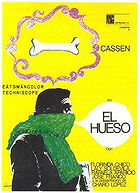 Posted : 13 years, 2 months ago on 25 March 2012 03:53
(A review of El hueso)
Posted : 13 years, 2 months ago on 25 March 2012 03:53
(A review of El hueso) 0 comments, Reply to this entry
0 comments, Reply to this entry
The Famous Sword Bijomaru (Meito bijomaru) (1945)
 Posted : 13 years, 2 months ago on 25 March 2012 10:58
(A review of The Famous Sword Bijomaru)
Posted : 13 years, 2 months ago on 25 March 2012 10:58
(A review of The Famous Sword Bijomaru)"The Famous Sword Bijomaru" was made by Mizoguchi during World War II under the watchful eye of the Japanese government was suspicious of the socialist ideals of Mizoguchi.
The chambara story takes place in Japan in the mid-nineteenth century can be characterized by their economy of means, starting with his little footage and still limited to a few characters who bear the full weight of the action. With allegedly staging theatrical and although their plans are as simple as brilliant, there is too much artificiality in some sequences and even though the protagonists are convincing and are treated with affection by the Japanese master, their personalities are not very rich, with little nuances . To highlight the complex use of the fixed plane, almost like a pictorial expression and always solved with excessive credit, but delve into that kind of theatrical exhibition.
Although Mizoguchi has not acquired his fame through films like "Meito bijomaru" is easily recognizable in it its good and the obvious interest of his narrative.
The chambara story takes place in Japan in the mid-nineteenth century can be characterized by their economy of means, starting with his little footage and still limited to a few characters who bear the full weight of the action. With allegedly staging theatrical and although their plans are as simple as brilliant, there is too much artificiality in some sequences and even though the protagonists are convincing and are treated with affection by the Japanese master, their personalities are not very rich, with little nuances . To highlight the complex use of the fixed plane, almost like a pictorial expression and always solved with excessive credit, but delve into that kind of theatrical exhibition.
Although Mizoguchi has not acquired his fame through films like "Meito bijomaru" is easily recognizable in it its good and the obvious interest of his narrative.
 0 comments, Reply to this entry
0 comments, Reply to this entry
Vibración de Granada (1935)
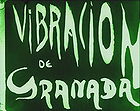 Posted : 13 years, 2 months ago on 24 March 2012 06:25
(A review of Vibración De Granada)
Posted : 13 years, 2 months ago on 24 March 2012 06:25
(A review of Vibración De Granada)"Vibración de Granada" (1935) can be considered as a silent sketch, a previous from life of the work that Val del Omar, the director, devoted to Granada twenty years later in "Aguaespejo granadino". Despite the absence of sound and therefore lacking the poetic comments of their more sophisticated sequel, supplements this deficit as a visual exuberance from its very personal portrait lens, full of lyricism and suggestions.
The rich lace of La Alhambra and the whimsical forms that acquire the water that flows from its source, the sobriety of the elderly and the joy of children, markets and places of the Andalusian city that charge a depth dimension, almost spiritual transcending the merely photographic to return to the viewer other poetic reality, bordering on fantasy.
The rich lace of La Alhambra and the whimsical forms that acquire the water that flows from its source, the sobriety of the elderly and the joy of children, markets and places of the Andalusian city that charge a depth dimension, almost spiritual transcending the merely photographic to return to the viewer other poetic reality, bordering on fantasy.
 0 comments, Reply to this entry
0 comments, Reply to this entry
A Tale of Two Sisters (Janghwa, Hongryeon) (2003)
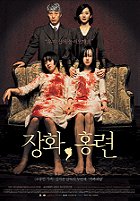 Posted : 13 years, 2 months ago on 24 March 2012 05:48
(A review of A Tale of Two Sisters (2003))
Posted : 13 years, 2 months ago on 24 March 2012 05:48
(A review of A Tale of Two Sisters (2003))All this movie score can be obtained due to its unique visual bill, typical of oriental horror productions, full of imagery and unsettling atmospheres. But the script is leaking everywhere, repeating situations and making the main character suggestion, without resolution, end and, worse, no intelligibility. The inevitable violence of South Korean films and brand director, Kim Jee-woon. Confused mother and stepmother, and sister living or sister dead: no female character that can not impersonate another like pieces of a puzzle unsolvable. The only thing that saves this section is the only male, the father. Here, the film is a good skill points: given the complexity feminine men are more than just.
If tomorrow I were asked by the plot of the movie would cost me something to respond fully. As visual as emphatic in tangled, tangled in narrative reading.
If tomorrow I were asked by the plot of the movie would cost me something to respond fully. As visual as emphatic in tangled, tangled in narrative reading.
 0 comments, Reply to this entry
0 comments, Reply to this entry
El compadre Mendoza (1934)
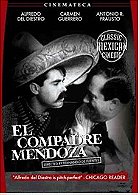 Posted : 13 years, 2 months ago on 21 March 2012 10:13
(A review of Godfather Mendoza)
Posted : 13 years, 2 months ago on 21 March 2012 10:13
(A review of Godfather Mendoza)In the Mexican Revolution, the landowner Rosalio Mendoza survives doing and asking for favors on both sides of the conflict (government forces and the army of Zapata). In your doing and everyone is welcome Mendoza is highly esteemed, especially by General Felipe Nieto. Time passes and the situation starts to become unsustainable. Mendoza will have to take sides, even if it means the betrayal of his friends.
"El compadre Mendoza" is a major Mexican film based on a story by Mauricio Magdaleno, with dialogues of Juan Bustillo Oro and de Fuentes. In the context of an allegory about the assassination of Emiliano Zapata, attended the one hand, the moral destruction of a man accommodative (Alfredo's Right as Rosalio Mendoza), who sacrificed friendship for the benefit of immediate interest, and secondly hand, found platonic love, clean and honest between Dolores (Carmen Guerrero) and General Felipe Nieto (Antonio R. Frausto) narrated with infinite delicacy and tenderness.
The movie is part of the best of its director, Fernando de Fuentes, and be placed on what has been called the "trilogy about the Mexican Revolution": "El prisionero trece" (1933); "El compadre Mendoza" (1933) and "Vámonos con Pancho Villa" (1935).
"El compadre Mendoza" is a major Mexican film based on a story by Mauricio Magdaleno, with dialogues of Juan Bustillo Oro and de Fuentes. In the context of an allegory about the assassination of Emiliano Zapata, attended the one hand, the moral destruction of a man accommodative (Alfredo's Right as Rosalio Mendoza), who sacrificed friendship for the benefit of immediate interest, and secondly hand, found platonic love, clean and honest between Dolores (Carmen Guerrero) and General Felipe Nieto (Antonio R. Frausto) narrated with infinite delicacy and tenderness.
The movie is part of the best of its director, Fernando de Fuentes, and be placed on what has been called the "trilogy about the Mexican Revolution": "El prisionero trece" (1933); "El compadre Mendoza" (1933) and "Vámonos con Pancho Villa" (1935).
 0 comments, Reply to this entry
0 comments, Reply to this entry
Macario (1960)
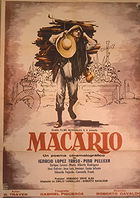 Posted : 13 years, 2 months ago on 21 March 2012 07:02
(A review of Macario)
Posted : 13 years, 2 months ago on 21 March 2012 07:02
(A review of Macario)Bruno Traven was a writer born in America but of Scandinavian origin (some say German), who lived in Mexico for a long time, Mexican nationalized and dying there. Like other writers (Graham Green or Malcolm Lowry to name one) was influenced by the Mexican people and wrote several novels about their customs and their character as closely as it was written by a Mexican. One of these great texts of Bruno Traven is entitled "Macario" novel that is based the film directed by Roberto Gavaldón.
The movie contains some unforgettables sequences. Sum is a moving account, which shows the extreme poverty of Mexican peasants, and all that surrounds it, hunger and death, but also the kindness and love. Actors, brimming with natural, truthful account of the social stratum of a village either: the chatter of the people, and how haughty contempt of the bourgeoisie, intransigence and cruelty of the Inquisition. This captured by the bright camera of Gabriel Figueroa.
One of the best Mexican films of all time.
The movie contains some unforgettables sequences. Sum is a moving account, which shows the extreme poverty of Mexican peasants, and all that surrounds it, hunger and death, but also the kindness and love. Actors, brimming with natural, truthful account of the social stratum of a village either: the chatter of the people, and how haughty contempt of the bourgeoisie, intransigence and cruelty of the Inquisition. This captured by the bright camera of Gabriel Figueroa.
One of the best Mexican films of all time.
 0 comments, Reply to this entry
0 comments, Reply to this entry
The Important Man (Ánimas Trujano, 1961)
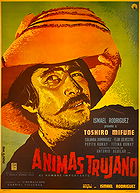 Posted : 13 years, 2 months ago on 21 March 2012 06:32
(A review of The Important Man)
Posted : 13 years, 2 months ago on 21 March 2012 06:32
(A review of The Important Man)The argument explains everything. Animas Trujano is the story of a surly, drunken and irresponsible native of a small town in Oaxaca. His greatest desire is to someday be chosen ruler of his people great honor annual title usually given to the most wealthy and respected citizen, who will be responsible for putting all the money for an annual feast in honor of the virgin to which every the people are invited.
His fixation leads to a long journey of frustration and deceit lawsuit to finally find yourself facing, or are unable to see himself through the eyes of others. An interesting film where we see for the first time Toshiro Mifune Japanese cinema outside the Mexican exercising perfectly thanks to your facial features and large eyes.
The narrative is fluent and well supported by the excellent photography by Figueroa and good interpretation of those characters abound in the movie. An important fresh of the spirit of Mexican society.
His fixation leads to a long journey of frustration and deceit lawsuit to finally find yourself facing, or are unable to see himself through the eyes of others. An interesting film where we see for the first time Toshiro Mifune Japanese cinema outside the Mexican exercising perfectly thanks to your facial features and large eyes.
The narrative is fluent and well supported by the excellent photography by Figueroa and good interpretation of those characters abound in the movie. An important fresh of the spirit of Mexican society.
 0 comments, Reply to this entry
0 comments, Reply to this entry
The Outsaiders (Los caifanes, 1967)
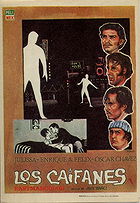 Posted : 13 years, 2 months ago on 21 March 2012 12:24
(A review of Los Caifanes)
Posted : 13 years, 2 months ago on 21 March 2012 12:24
(A review of Los Caifanes)Before commenting on the film wanted to clarify the meaning of "caifán", which refers in the plural, in its own title.
Several years ago (in the early 50's and 60's of last century) in Mexico City were called so that people could be seen as thugs, lazy or just wandering in some neighborhoods. Also said that the term emerged as a spanglish for "me cae fine", in other words, "I like that person."
The plot shows a high-class young couple who escapes from a party-boring-snob friends, with the intention of having a foreplay in an abandoned car. The arrival of Capitán Gato and his "caifanes" changed their plans for the couple that night. Together, rich and poor, made a picturesque and "teaching" night journey by cabarets, gas stations, parks, funeral homes and inns in the Mexico D.F.
The movie shows, without resorting to bombast, that meeting between young people is different, just a sample of generational tastes, dissection classes.
Also learn more in a fun night mexican habits and customs of the country in a documentary to use. The psychological study made of the characters portrayed is worth seeing and never entretenemiento not decay along the projection. Notable movie.
Several years ago (in the early 50's and 60's of last century) in Mexico City were called so that people could be seen as thugs, lazy or just wandering in some neighborhoods. Also said that the term emerged as a spanglish for "me cae fine", in other words, "I like that person."
The plot shows a high-class young couple who escapes from a party-boring-snob friends, with the intention of having a foreplay in an abandoned car. The arrival of Capitán Gato and his "caifanes" changed their plans for the couple that night. Together, rich and poor, made a picturesque and "teaching" night journey by cabarets, gas stations, parks, funeral homes and inns in the Mexico D.F.
The movie shows, without resorting to bombast, that meeting between young people is different, just a sample of generational tastes, dissection classes.
Also learn more in a fun night mexican habits and customs of the country in a documentary to use. The psychological study made of the characters portrayed is worth seeing and never entretenemiento not decay along the projection. Notable movie.
 0 comments, Reply to this entry
0 comments, Reply to this entry
Del olvido al no me acuerdo (1999)
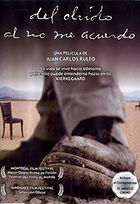 Posted : 13 years, 2 months ago on 17 March 2012 07:36
(A review of Del olvido al no me acuerdo)
Posted : 13 years, 2 months ago on 17 March 2012 07:36
(A review of Del olvido al no me acuerdo)Juan Carlos Rulfo follows in the footsteps of his father, the poet and novelist Juan Rulfo Mexican state of Jalisco, where after many years, his memory is still present in the vague memory of some people who knew him and treated him in his moments of fullness and all who are now elderly.
The documentary makes an estimable investigation work between forgetfulness and oblivion, as its title indicates, it always warns the rich presence of one who is not there through interviews with close friends as were his widow and some literary friends. All who tried to close Rulfo agree that he loved to practice exercises impersonation of realities, beginning with originating a puzzle already starting place or year of birth. In this regard, perhaps the most beautiful phrase in the film, in the words of his friend the writer Juan José Arreola: "I like to believe everything he said". True or false... who cares?
If Juan Rulfo does speak "Pedro Páramo" to men and women from the world of the dead or from the depths of hell, Juan Carlos Rulfo makes talking on the verge of the grave. One of the elders, who thinks he has engaged in a duel with the devil, said in the final scene, there is no other world like this. He adds disjointed but beautifully, letting fall drops in the ear the poison of melancholy: "They say there are other but not think so. No one gets tired of living. (But) there is another life that is as beautiful as the first one is this world".
The documentary makes an estimable investigation work between forgetfulness and oblivion, as its title indicates, it always warns the rich presence of one who is not there through interviews with close friends as were his widow and some literary friends. All who tried to close Rulfo agree that he loved to practice exercises impersonation of realities, beginning with originating a puzzle already starting place or year of birth. In this regard, perhaps the most beautiful phrase in the film, in the words of his friend the writer Juan José Arreola: "I like to believe everything he said". True or false... who cares?
If Juan Rulfo does speak "Pedro Páramo" to men and women from the world of the dead or from the depths of hell, Juan Carlos Rulfo makes talking on the verge of the grave. One of the elders, who thinks he has engaged in a duel with the devil, said in the final scene, there is no other world like this. He adds disjointed but beautifully, letting fall drops in the ear the poison of melancholy: "They say there are other but not think so. No one gets tired of living. (But) there is another life that is as beautiful as the first one is this world".
 0 comments, Reply to this entry
0 comments, Reply to this entry
Succubus / Necronomicon (1968)
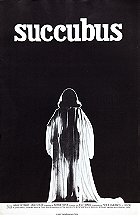 Posted : 13 years, 2 months ago on 17 March 2012 06:31
(A review of Succubus)
Posted : 13 years, 2 months ago on 17 March 2012 06:31
(A review of Succubus)I don't understand how this film is among the best examples of Jesus Franco film, still speaking of his most declared, more open film series B and in a few channels stylistically more unhinged. Fewer still understand that personalities such as Orson Welles (and not the only) praised this work, unless it will guide his friendship with the other hand, great Jess.
The worst of this story that does not communicate, it does not attract attention at any time, is its pretentiousness, its absurd and decadent style so seedy. Well filmed and influenced by the comics of Guido Crepax (known is the director's interest in graphic stories) would be the only contribution of some value. Also boasting a jazzy musical cutting. But when so many mixed ideas, why not say, so many genres, confusion becomes the main character and you can not save this baroque display of personal obsessions that do not fit in any way and leave a feeling of futility for any message.
The worst of this story that does not communicate, it does not attract attention at any time, is its pretentiousness, its absurd and decadent style so seedy. Well filmed and influenced by the comics of Guido Crepax (known is the director's interest in graphic stories) would be the only contribution of some value. Also boasting a jazzy musical cutting. But when so many mixed ideas, why not say, so many genres, confusion becomes the main character and you can not save this baroque display of personal obsessions that do not fit in any way and leave a feeling of futility for any message.
 0 comments, Reply to this entry
0 comments, Reply to this entry
 Login
Login
 Home
Home 187 Lists
187 Lists 208 Reviews
208 Reviews Collections
Collections